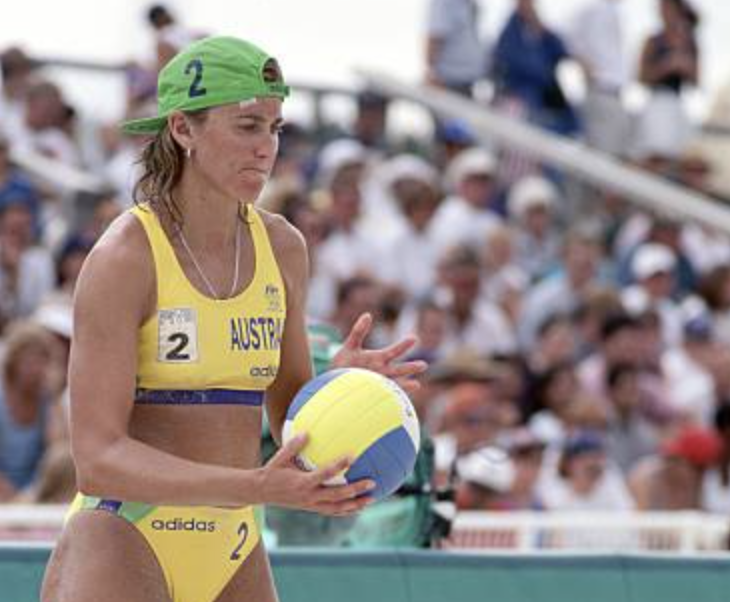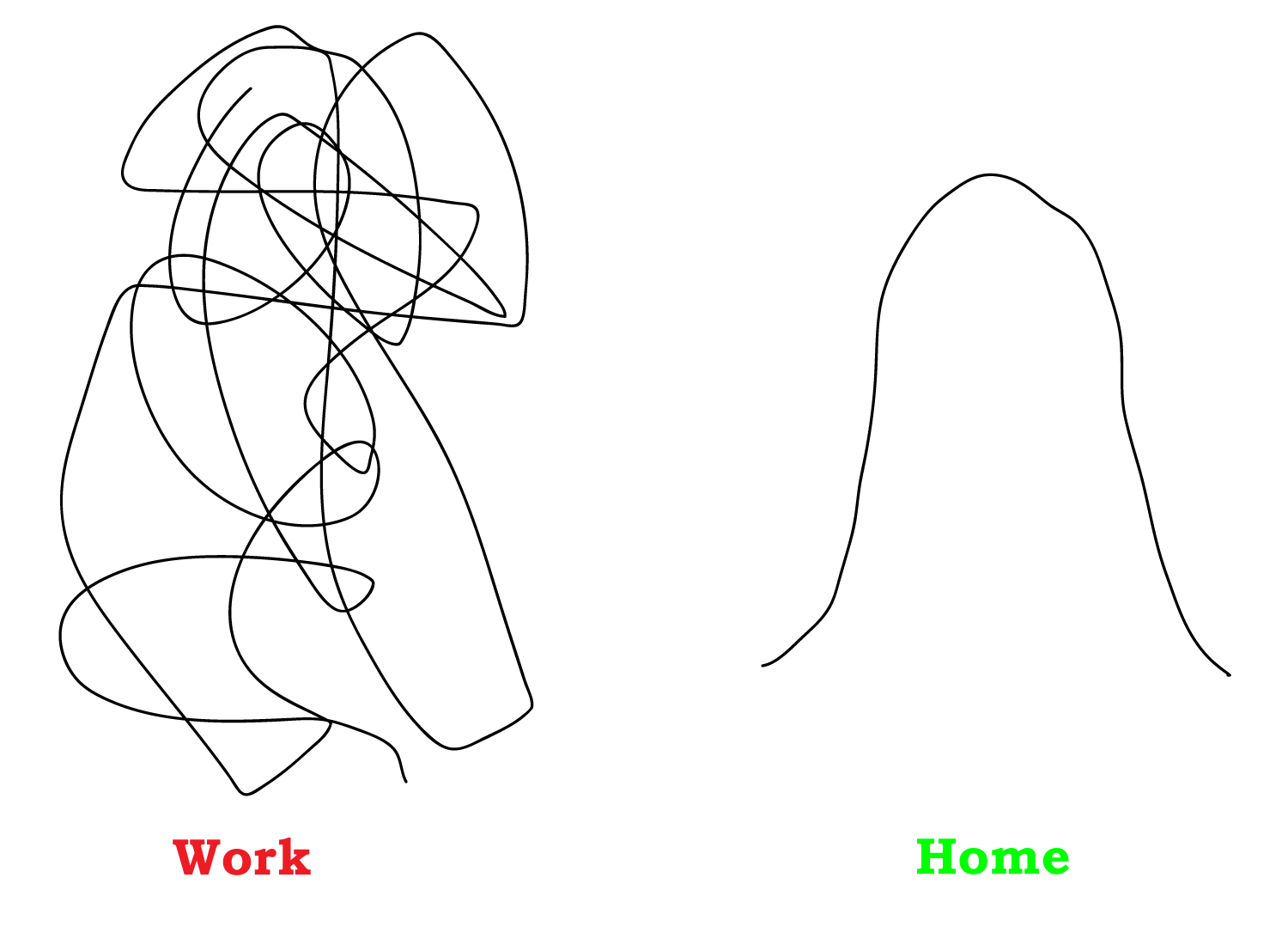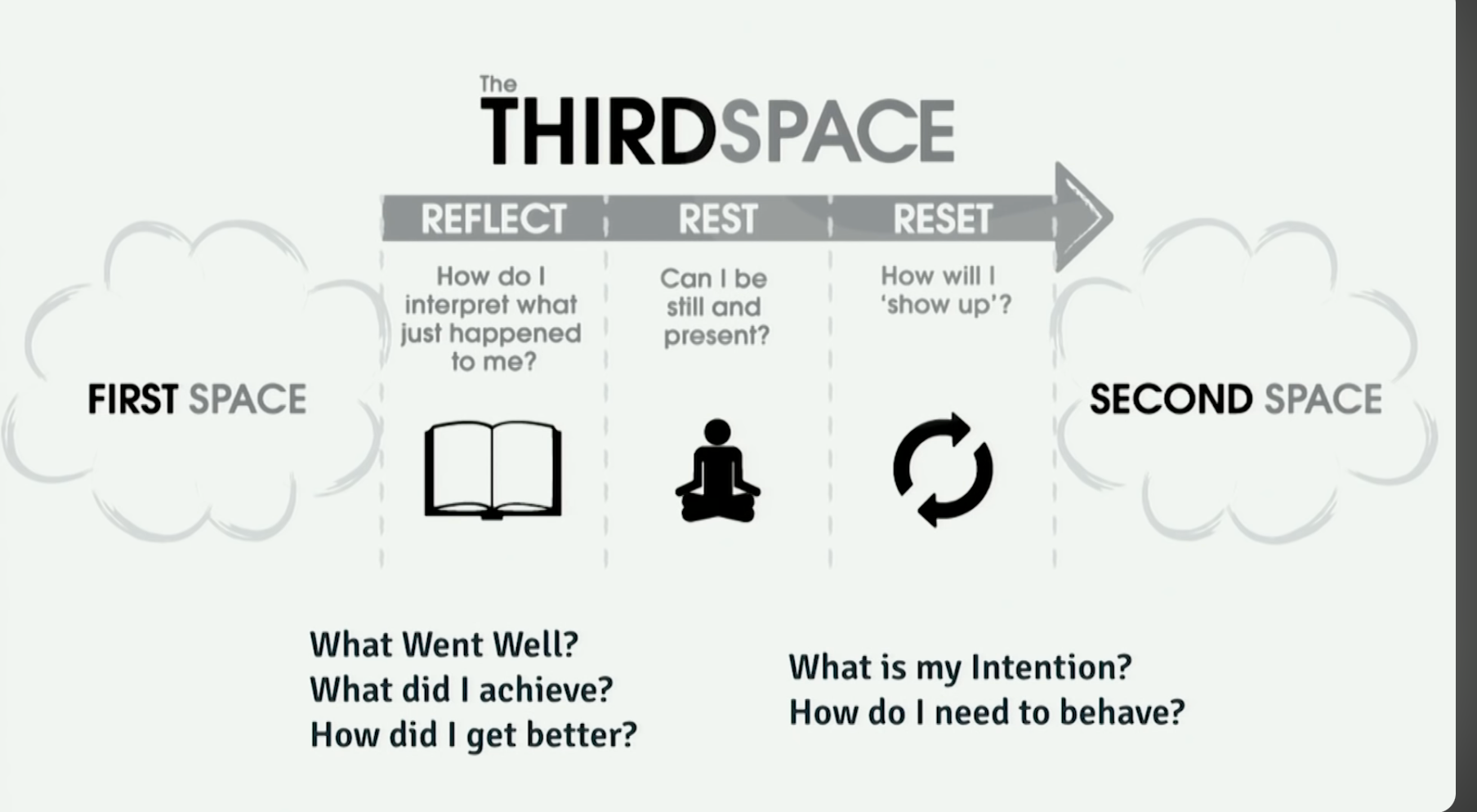
How To Score the Winning Point When You Come Home.
Abstract
Picture yourself driving home from a chaotic day at work, and it was a rough one. Perhaps a major complication reared its ugly head unbidden. Or a meeting with a colleague went south. Or the whole day was just totally f&*$ing overwhelming. On the ride home the rumination and the unconscious reliving of the day puts your brain in a pair of mental handcuffs without a key to get free. You pull up into the garage, get out, and walk into your loved ones dragging your day in the door with you. Now they get a piece of your mental and emotional action as you handcuff them with your day. We all do this sometimes, but if routine, your loved ones could, as a matter of routine, dread your arrival and being around you. Dr. Adam Fraser in this amazing video shows us how to create a Third Space between work and home that creates the conditions for a warm, calm, present, and engaged you to show up so that your loved ones look forward to seeing and being with you. Even if you live alone, it is important to show up this way for yourself! It's magic, but it has to be practiced.
Dr. Adam Fraser
Key Takeaways
The Third Space is a place of transition between the First Space - work, and the Second Space - home. You decide what and where this is. The gym, a shower, a walk, meditation, the car. Whatever works best for you.
In the Third Space, you follow three steps, in sequence:
- Reflect on your day - and specifically ask yourself what went well, what did I achieve, and how did I get better.
- Rest - gain presence and calmness.
- Reset - and decide how you will show up at home by setting an intention and deciding how you will behave.
Summary
Adam Fraser is a high-performance thought leader from Australia, and he starts the talk with a story about Kerri Pottharst, a gold medal-winning Olympic volleyball player. She and her team were tied in the final game for the gold medal and whoever made the next two points in a row would win. Kerri served an ace, followed by another serve they were unable to return, and they won the gold.
Before Kerri's winning set of serves, however, they went back and forth with one team winning one point, then the other, repeatedly until Kerri nailed the two points to win.
In a subsequent interview with Kerri, Adam asked her how she handled the massive pressure of the moments in between each point to avoid "buckling." Her response:
"Once you are in the point you're fine. The hard part is getting to the point, because it is in the gap between points 1 and 2 where you can unravel. It all occurs in the gap."
The gap is where you can unravel and start to get undone, fear takes over, you doubt your preparation, and you start worrying about the outcome instead of the next point.
Kerri then said: "Champions manage the gaps."
This turns out to be true for all elite athletes, including tennis. A study looked at 100 of the top tennis players and compared them to lower-ranked players and found that their strokes and serves were nearly identical overall. The biggest difference? The elite players could lose a point and recover very fast. As Adam said - "they make a mistake, they drop the baggage rapidly, and move on to the next point, and show up clean."
Then, totally fortuitously, Adam was putting on a workshop for a company, and at the end, the CEO asked if he would like to come to his house for dinner. Adam was amazed that this hard-charging intense CEO was so calm, present, relaxed, and fully engaged with his family and him at dinner, and on the way out, at the door, Adam asked him how he manages to go from "psycho businessman to super family man and father?"
The CEO said it is all due to my Third Space, and he explained that his work has its own rhythm (mostly chaos) and his home and family have a different rhythm that is smoother. They are different, and "they require me to be different."

The CEO said that before he created his Third Space, he would rush home at the end of the day and drag his chaos in the door with him, finishing his wife's sentences because she wasn't talking fast enough, or badgering his kids because they were not efficient with their time. In other words, he trying to run his home like his office.
Until one day when he opened the door to his home and caught a glimpse of his kids scrambling around the corner to get outside to avoid him......he was devastated and as he thought about it more he realized he comes home like an "angry hurricane" that complains about the house not being clean or the kids rooms being a mess.
So the CEO actually built another entrance into the house that led to his bedroom where for 15 minutes he took a shower, then a relaxation exercise, and then he shifts his mindset.
The Third Space is any space, or a Gap as in the sports world, where you shift your mindset, because the personal stakes are so high. If you bring home a good mood, they will be in a good mood. Bring home a bad mood, and they will end up in a bad mood. It is a classic emotional contagion situation.
Adam started teaching the Third Space concept in his leadership workshops and he kept receiving feedback from participants that by implementing the process they were able to achieve much greater work-life balance (hold off on groaning over the words work-life balance for a moment!).
Adam was so floored by this that he reached out to John Molineux, a human resource management professor at the Deakin Business School and they did a study, by first interviewing people about what the hell work-life balance actually means to them, which for most people was simply to be happy and have better relationships, unlike most research and advice which approaches it from a time management perspective.
Then they interviewed families and asked, "What does it look like if your partner had work-life balance?" Their answer - they get the time crunch issue, and the fact that their days are chaotic and stressful, but what they do not get is that they "come through the door like a jerk and/or take their day out on us." All they wanted was for them to engage with them in a positive way, pure and simple.
After 3 years of research with over 600 people trained in the Third Space process as part of other workshops, they came up with the magic formula for the Third Space process.

First, you need to decide where your personal Third Space will be. You can construct a separate entrance to your home if you like, but most people in the study used exercise as a Third Space, but it can be anything including Soduku puzzles, a hot bath (my wife always took a hot bath upon coming home from her work as a high-risk obstetrician but she often ruminated about the challenges of her day as she did not have a clue about the reflect, rest, and reset protocol above), meditation, whatever works for you. You can do it in the car to your favorite music if that works.
Then you Reflect and do what the military does after an operation: a debrief of the day. This is not a rehashing of all that was wrong with the day, but instead a process of reflection where you ask yourself the following questions:
- What went well today?
- What did I achieve today?
- How did I get better today?
This mental reorienting is like changing the channel on the TV of your mind. But instead of just channel surfing you take charge by consciously shifting your attention from the unconscious rumination and the stories looping around in your head to a focus on the growth or on learning from the day's challenges. In their study they found an unintended consequence for these business people of changing their mental channel: not only did it give them a burst of happiness, but it also increased their consciousness of their behavior at work and how to improve, which had marked spillover effects.
Next you Rest by doing anything that makes you still and present. Think about it. A long hard day of operating, or clinic, combined with the myriad of other forces pummeling you - well your brain gets wired and frazzled. Your brain literally needs a break, just like our muscles do after a hard workout. Find whatever it is that gives your brain a rest. Exercise is great, not only because it affords a rest stop, but also because of its massive physiologic impact on the brain through myokines and stress relief.
And finally, you Reset, where you set an intention for how you will show up when you walk through the door of your home and how you need to behave to accomplish that intention. I realize this can be difficult after a long hard day, but like so many things in life, it is not about how you feel (how often do you "feel" like working out) but about doing it, regardless, since as Rich Roll, the podcaster says "mood follows action."
After just one intervention (education and training about the Third Space at a workshop) follow-up surveys showed a 41% improvement in the mood at home of the participants. This is so impressive given the almost certain variability of the level of commitment and implementation of the Third Space by participants.
Adam tells the story of a large burly man whom he trained in the Third Space protocol. Before the training he would come home and start picking at his son about his room being a mess and whatever else he wasn't doing right. He realized that until two years ago his son had been so physically affectionate towards him - always hugging him and sitting right next to him on the couch. For the last two years, no physical affection. The burly guy decided - "who cares if his room is a mess." After implementing his new Third Space partner, his son finally gave him a hug again, spontaneously, for the first time in two years.
There are two types of people in the world:
Ones that light up a room when they walk in.
Ones that light up a room when they leave.
Which one do you want to be?
